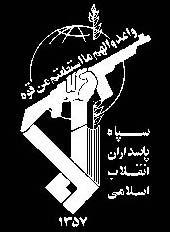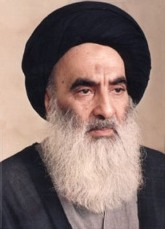The USA has ceased to be relevant
The relationship between Iraqi Prime Minister Nuri al-Malaki and the U.S. dictatorship in Iraq, which has always been tempestuous, has now deteriorated further. Much to the annoyance of his U.S. overlords; al-Malaki rubbished the preposterous claims that Iran is destabilising Iraq as the U.S. Government likes to claim. In fact al-Malaki pointed out the reverse is true and thanked Iran for its “positive and constructive” role in “providing security and fighting terrorism in Iraq”.
The comment not only earned rebuke from the beleaguered U.S. President, they also led to the following threat: ”my message to him is, is that when we catch you playing a non-constructive role there will be a price to pay.”
A rebuke that Prime Minister Nuri al-Malaki is not going to heed. His response the U.S. President criticism of his administration was even more assertive. He said:
“No one has the right to place timetables on the Iraq government. It was elected by its people. Those who make such statements are bothered by our visit to Syria. We will pay no attention. We care for our people and our constitution, and can find friends elsewhere.”
This statement represents a recognition in the Iraq government of the now irrelevance of the United States: the ignominious defeat of British forces in the South and the failure of the U.S. surge to quell the rise of factional violence or the insurgency has left al-Malaki government in no doubt that the U.S. forces have to all intents and purposes already been defeated and that there is no appetite in the United States to reverse that outcome: troop withdrawal is inevitable.
Thus al-Malaki is looking to the future; a future in which the United States’ role in Iraq will be limited; he is no doubt also aware that should Hillary Clinton win the U.S. presidency he would not be able to count on her support. She said this week that Iraq needs a “less divisive and more unifying figure.”
In fact whilst politicians in the United States make much of the Iraq’s sectarian divisions and urge a national unity government, this is fundamentally undemocratic and quite fraudulent, it is not for Iraq’s sake that they wish a pluralist government. An estimated 63% of the population are Shia. However, that is only if one includes Kurdistan, which is effectively a separate entity from Iraq. Certainly the main Kurdish parties are separatists. Thus if the Kurds are discounted, and properly they should be, since they do not consider themselves Iraqis; Shia constitute nearly 79% of the Iraqi population and Sunnis only 21%. Thus the sectarian divisions in Iraq are overplayed; in truth Iraq is a Shia country.
It is this reality that the United States government continues to supress: were they ever serious about installing democracy, they would support Shia majority rule and an Iranian style Islamic democracy; instead of doing all they could to prevent it. Yet it is clear that the United States cares little for Iraqi democracy; preferring anarchy and civil war to another autonomous Shia state in the region.
As ineffectual as al-Malaki has been as premier, the fact that he was willing to publicly chastise the U.S.A. and actively court Iranian and Syrian influence, despite incurring Washington’s displeasure, is significant since it reflects the mood on the street.







1 comment:
Very interesting, you know I’ve never thought of it that way but it makes sense, that’s probably also why America won’t just let Kurds breakaway and form their own state. What do you think?
Post a Comment